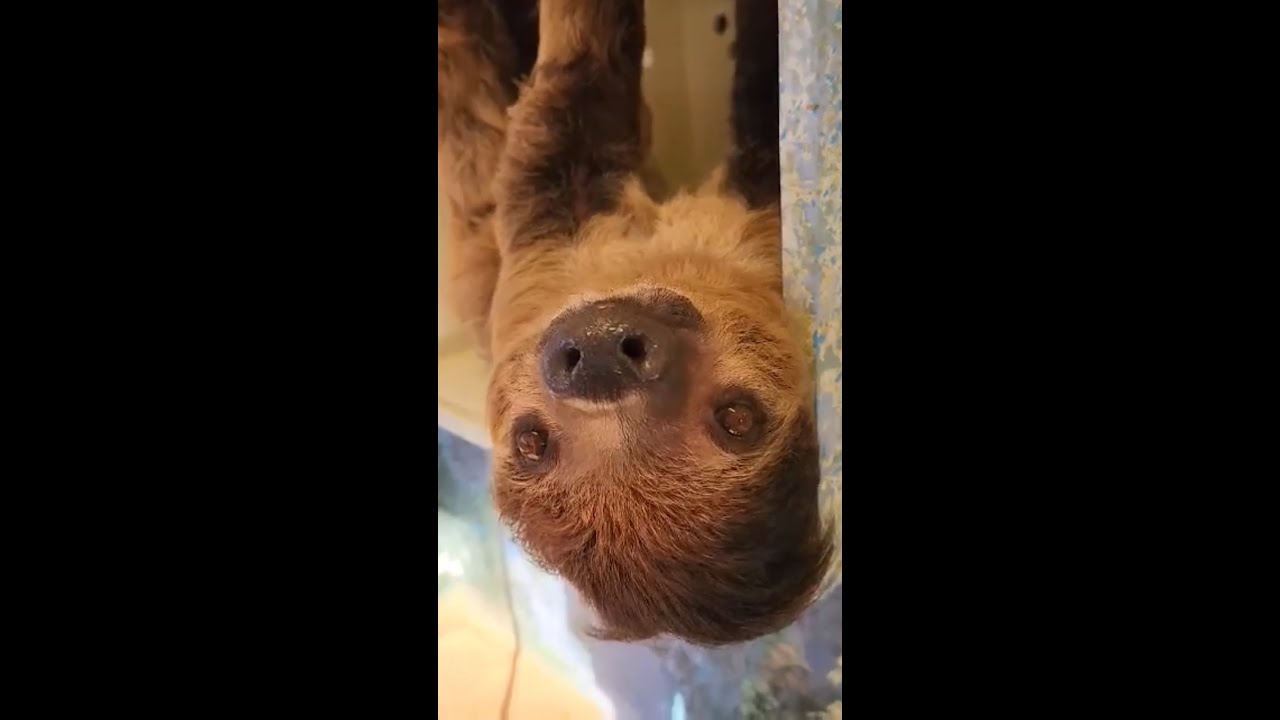– The unique lifestyle and characteristics of sloths and how they epitomize the art of slow living.
– The role of animal keepers, like Jennifer Hansen, is to provide care and enrich the lives of their charges, such as Charlie the Sloth.
– Exploring the importance of ‘sloth-tastic’ moments and how embracing a more sloth-like pace can improve our well-being.
– The positive impact of slowing down on mental health, using inspiration from the natural world, particularly from sloths.
—
In a world that often feels like spinning faster than a cheetah on a race track, one creature has become an unlikely icon of calm and deliberate living – the sloth. Today, let’s take a moment to step away from the hustle and say hello to Charlie the Sloth, a remarkable ambassador of tranquility in our restless age.
At first glance, our friend Charlie seems to accomplish very little. We were hanging upside-down from a tree branch and moving at a pace that would be generous even by glacier standards. But look closer. There is a hidden depth of wisdom in Charlie’s leisurely lifestyle that we could all stand to learn from.
Charlie is an expert in energy conservation. The slow metabolism of sloths allows them to thrive on limited food resources, primarily leaves that are low in nutrients and hard to digest. Munching at leisure, they remind us that the rush to ingest life—whether it be food, experiences or work—might not always serve us best. Enjoying what’s in front of us, slowly and with purpose, can be far more fulfilling and nourishing for the soul.
Despite their laid-back demeanor, sloths are far from careless. They only descend from their arboreal homes once a week to do their business on the ground – a dangerous endeavor as they are vulnerable to predators. Their calculated risk serves as a metaphor; it is worth coming down from our safe branches to ground ourselves in reality periodically, no matter the risk, as long as we return to our perches wiser and more balanced.
Being homebodies, sloths like Charlie have a symbiotic relationship with the trees they inhabit. Inside that shaggy coat lives a miniature ecosystem; algae grow in their fur, providing camouflage and a nutritional snack. It’s a beautiful testament to the interdependence of life – a reminder that taking what we need without giving back is an unsustainable practice in nature and human societies.
Animal care professionals, such as Keeper Jennifer Hansen, are crucial in creating an enriching environment for creatures like Charlie. Through meticulous care and observation, they ensure Charlie’s life in his habitat fulfills his physical and psychological needs. They become part of that delicate ecosystem, a reminder of our potential to nurture and foster life, to take part in the give-and-take that sustains the biosphere.
Moreover, these dedicated keepers also help bridge the gap between humans and nature. They offer insights into the lives of creatures such as Charlie, fostering empathy and encouraging conservation efforts. As stewards of wildlife, they guide us on how to co-exist with other species harmoniously.
Now, let’s draw some Monday Motivation from Charlie, shall we? Slow down and enjoy the ‘sloth-tastic’ moments in life. That report due by the end of the day? It’ll get done, but don’t rush it at the expense of quality or, more importantly, your peace of mind. The pressure to reply instantaneously to every email or message? Take a leaf from Charlie’s book – he certainly wouldn’t lose sleep over it.
There’s scientifically backed merit in embracing a more sloth-like attitude. Studies have shown that chronic stress can lead to numerous health issues, from anxiety to heart disease. Conversely, slowing down can increase creativity, improve focus, and promote better decision-making. Adding ‘sloth moments’ into your daily routine can mean taking a few minutes to meditate, enjoying your coffee without the interruption from your phone, or simply sitting and being present.
As for mental health, slow and steady also wins the race. The relentless pursuit of productivity can lead to burnout and emotional, physical, and mental exhaustion. Charlie’s pace reminds us that rest is not a sign of laziness; on the contrary, it’s essential for rejuvenation. Life’s subtle beauties can be found in these quiet moments of repose – the caress of a gentle breeze, the intricate pattern of leaves against the sky, the harmonious symphony of the natural world.
There’s a lot to learn from a life seemingly spent idle. But is it idle? Charlie moves more in sync with the Earth’s natural tempo. We might do well to follow suit. Finding balance might mean sometimes racing like a lion but also knowing when to embrace the profound stillness of a sloth.
Sloths may not dominate office buildings or take the world by storm with technological innovations, but they’ve mastered the art of existence in harmony with nature. Let’s take a page from Charlie’s slow and steady playbook as we navigate our lives. Let stress slide off like water off a duck’s back, understand that less can be more, and reach out to support the intricate web of life that we’re all a part of.
In conclusion, Charlie the Sloth is more than a charming, slow-moving mammal. He’s a symbol of the art of living well by living slowly. Those ‘sloth-tastic’ moments aren’t just whimsical interludes; they are the cornerstones of a healthy life. So, picture Charlie next time you’re on the brink of a Monday meltdown. Take a deep breath. Slow down. You’ve got this – not by rushing faster, but by savoring the journey, one deliberate, mindful step at a time.
*****
Source Description
Psst, want to hear Charlie’s Monday Motivation? Slow down and enjoy the ‘sloth-tastic’ moments in life. You got this! 🦥
#Sloth #MondayMotivation
📹: Animal Keeper Jennifer Hansen


